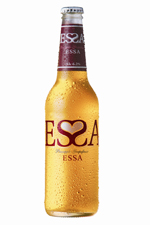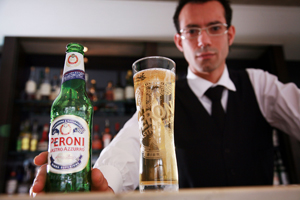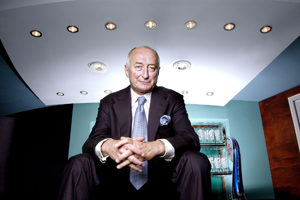According to a company press statement, SABMiller was the first brewing company in Russia to bring a product to the market which was created especially for women. REDD’s, which was originally developed in South Africa, opened a new subcategory in the Russian market several years ago.
Different possibilities how to calculate the brewhouse yield have been discussed for years. Many scientific articles in Germany and abroad pay critically and detailed attention to the numerous opinions and suggestions concerning this calculation. There have been intensive discussions about current OBY (overall brewhouse yield) of late.
In May 2010, Mrs Schörghuber in a rare public statement countered all allegations and announced that she has no plans to take Schörghuber Group public or sell it piecemeal. Instead she announced plans to grow it.
In an effort to stave off a ban on advertising, Europe’s brewers are relying on self-regulation. Whether it helps in the long-run remains to be seen.

It is not clear how the ban on selling alcohol below cost price could be enforced as retailers would be reluctant to reveal commercially sensitive details of deals with suppliers.
“The Times” reported that the Belgian-based global brewer is seeking a buyer for Bass, once Britain’s best-selling beer, at around the GBP 10 million to GBP 15 million mark so that AB-InBev can concentrate on its bigger brands like Budweiser and Stella Artois.
Although the UK has been hit hard by the global recession, consumers still wanted to treat themselves to affordable luxuries. This has benefitted the Peroni Nastro Azzurro brand, which tries to differentiate itself from other premium brands through marketing activity not usually associated with the category. Peroni Nastro Azzurro has a design partnership with Alessi and a fashion collaboration with Antonio Berardi.
EBITA was up 17 percent in Latin America and 7 percent in North America, where SABMiller is a partner in MillerCoors. In Europe, however, earnings were down 8 percent as lager volume fell by 5 percent.
Despite the fact that almost every German brewer has beer mixes in his portfolio, it’s merely a good dozen or so brands which have reached any size and volume.
Carlsberg saw a drop in volumes of 7 percent during the first quarter of 2010 to 21 million hl, brought on by a steep decline in eastern Europe. While volume increased 3 percent in northern and western Europe, and 16 percent in Asia, excluding acquisitions, this could not fully offset an organic 27 percent drop in the brewer’s eastern European unit, which includes Ukraine, Kazakhstan and Uzbekistan, it was reported.





